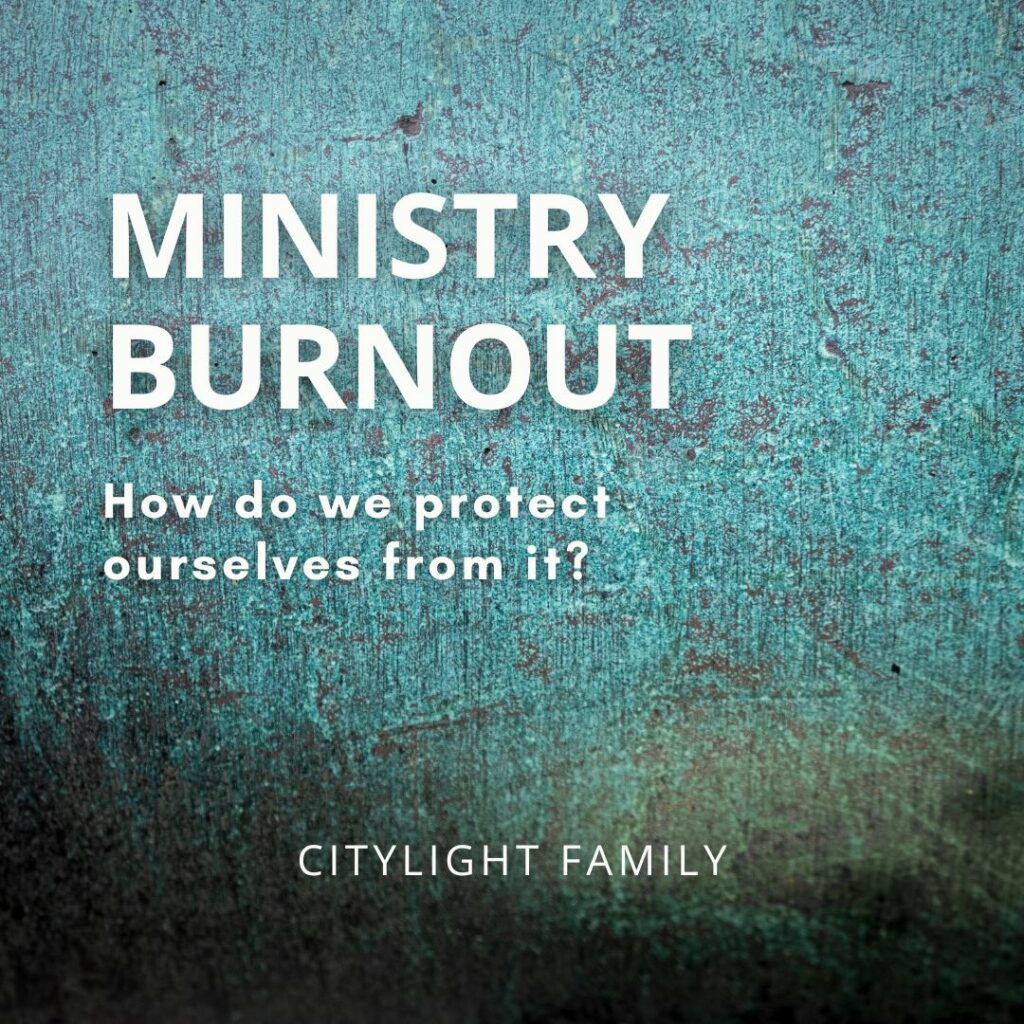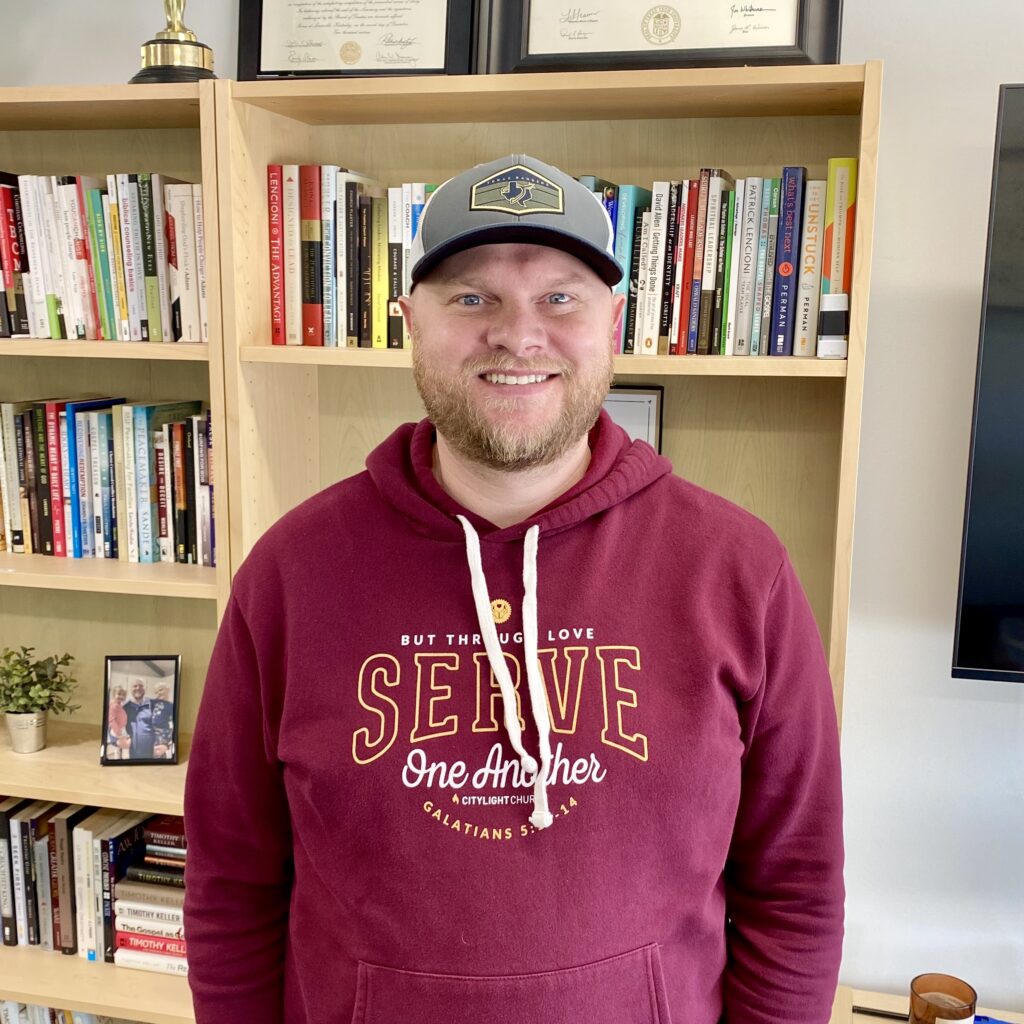How can we fight against it as ministry leaders and believers?

As ministry leaders and “professional Christians,” advocating for personal rest can be challenging and sometimes, questionable. The needs of the Church, a staff team, work hours and calendars changing week to week, the devotion to study scripture, and then throw in the personal insecurities and family demands can make someone unhealthy very quickly. We also all have devices in our pockets and purses that demand our time and attention and constantly notify us on what we are ‘missing.’ We are fighting against a culture of hurry and the urgency of being “on,” available, and accessible.
After a hard year of similar thoughts and pressures, Sam Reece, campus pastor at Omaha West, knew change needed to happen. He was doing a lot of good things, but some for the wrong reasons. He knew that he needed to make some change in his rhythms and relationship with Jesus. At the suggestion of another ministry leader, he read John Mark Comer’s Ruthless Elimination of Hurry and began the tedious process of looking at everything in his life so that he could get to the root of what was God’s plan and who he is. From that process, a discipline of rest was born, and Sam hasn’t looked back.
WHAT IS REST?
Rest is defined in the dictionary as freedom from labor, a place for rest or lodging, a peace of mind or spirit, a brief pause, and something used for support. The Gospel is all these things. As Christians, we find these in Christ.
“My mind wants to go to what rest is not,” Sam shared. “Often times, we think rest is the absence of doing. We can fall into a mindset and need to get stuff done. As Christians, our rest is not found in the absence of doing, but in the person of Jesus Christ. We find our rest, sabbath, in Jesus. It’s a regular practice of remembering who Jesus is creator and sustainer of all things. It’s remembering what he has done for us: he put on flesh, came as the God-man who lived a perfect life, died the death we deserved, and rose from the grave so that we could be in relationship with Him. And we remember what that means for us now–we are chosen, adopted, loved, and our identity is in him.”
Sam concluded that, “Rest is remembering the Gospel truth. Rest is also seeking to walk with him and in his power through daily practices of space to pray, to read, to be still and silent before the Lord. To do the things that just don’t remind me of truth, but also cultivate a relationship with him. It’s a regular time every day, seeking him to walk in his power and spirit. It’s confessing sin and inviting the Spirit of God to lead and guide you throughout the day. It’s not one and done either, but every day. If I’m not walking in his power, I’m walking in my power.”
So how? How does one rest? Sam has found that it is a commitment to rhythms and new habits and guarding them in your calendar and heart.
“One of the healthiest things I have done for my life is setting time with the Lord,” Sam revealed with eagerness. “Unless we build rhythms to pause and engage our heart, the danger is we look up and feel anxious and not know why. It comes from the squeezing of life. We start to ask, “why am I not ok?”
These rhythms, daily and seasonal, can help keep a short account of the feelings of anxiousness and to check where our hearts remain.
DAILY TIME
“I spend time with the Lord every day,” Sam revealed with eagerness. “For me, it’s the 30-minute window in the mornings. I wake up, I read the 2-year bible reading plan, I take 15 minutes to be silent, and I do that in different places. Lying in bed in the dark, sometimes sitting down in my living room in a favorite chair. I then pray. I’ll look at my day and pray through the day, for my family, for what comes to mind. Some seasons I pray through the Puritan prayers. It’s a daily connection in the morning to be, to hear, and to speak with the Lord. Whenever that window of time is for a person, to take it every day. There is freedom in that and we need to pursue what stirs our affections for the Lord.”
QUARTERLY AND YEARLY TIME
“Every 60-90 days I plan on what I call a personal retreat day,” Sam offered. “That is a day I set aside for a personal inventory of my heart. A third of the time, I think through and process through some heart and identity questions I have and with the goal to keep a short account of my heart and life. Our natural tendency is to drift. Our flesh and enemy are crafty. Comfort, control, approval, and acceptance can creep back in over time. These inventory questions helps to keep that accountable. It brings everything to the light and community.”
“The second third of the day I like to call to be present with the Lord. It’s an extended time with the Lord. Where I do some deep diving in study or read a whole book of the Bible. Some of this time I take to pray, study on a specific topic, prayer walk, or practice silence and solitude. I want to do things that stir my affections for the Lord. I am intentionally pursuing him during this time.”
“The final third of the time is planning for life and leadership. I look at the next 60-90 days and think through my priorities. As a leader, are there things I need to prioritize and run at. As a husband and father, are there things I need to prioritize in my home? Are there different discipleship aspects in my home? What spiritual, emotional, and physical priorities are there? What am I going to read in and outside of the Bible? Are there additional disciplines I want to implement? I make a plan to walk in these priorities in the next season.”
PLANNING YOUR TIME AND PLACES FOR REST
Planning and blocking out time and protecting this time is the key. The danger is that there will always be something to do and the lie that you can’t pull away. Most people do not pull away or they plan a time and then cancel the time and never get back to scheduling a time of rest on their calendar. It is not selfish nor indulgent to care for your heart. It is essential for any believer and leader to do this.
“I’ll look at my calendar, put it on my calendar and I won’t cancel,” Sam confessed. “The week of my rest, I plan where I will go and communicate with family and co-workers so that no one is reaching out unless there is an emergency.”
Finding a place for rest, and changing places for rest, can be helpful. Some like to be outdoors as nature gives an opportunity for different perspectives and thoughts. If that can’t happen, there can be places indoors that can offer silence and introspectiveness.
“You know there’s freedom where you choose,” Sam said with thoughtfulness. “Some mornings I go get coffee away from my home or I’ll go to my gym or my office at work and shut the door. A couple of times I have visited a local college’s library. It’s finding a place where I won’t be interrupted. I like to change scenery at lunch time. Recently, I spent the afternoon on a 45 min walk outdoors while listening to the Bible. There’s freedom in what you choose, you know what stirs your affections. The main thing is to plan. If you just go and assume everything will be fine, 2-3 hours into it you start asking “what do I do?” You know you.”
FRUITS FROM TAKING REST
These carved out times and places can protect us from burnout but also provide a long list of benefits, expected or unexpected. This ‘fruit’ can look and come in many ways.
“I have seen much fruit,” Sam admitted. “I feel like it’s helped me to have the right perspective and awareness of the day. My posture is more reliant and dependent on the Lord and not seeking to walk in my own power. For example, my posture has been more present with people and not distracted. The reality is I love efficiency and sometimes work, people, and meetings are not efficient. When people show up in my office, I now have a perspective of presence and patience. Ministry is with and for people for the glory of God. I’m here not to be efficient but instead to be used by the Lord. To help me then to be more present in me. When I am with someone, I’m with them.”
Sam has also learned to keep a short account of his heart with the Lord. Many times, we think it’s all fine. Life is fine. The family is fine, and you can find yourself on cruise-control. As life squeezes, it tests this.
“I get short and a discipline of rest and time with the Lord has helped me to be more aware of where my heart is at,” Sam disclosed with sincerity. “I’m aware of my heart idols. My main heart level is comfort. In ministry we walk through seasons of sin and suffering with people. That’s not comfortable. Now, I feel like I naturally move towards this. I’m not in self-preservation. There’s been people suffering in our church, and the difference is now I want to move towards that and just be present. It’s a delight now rather than duty. Shepherding is not a hired hand; we are with the sheep. I’m a sheep as well. Resting in the Lord has helped me to not be begrudging, but willing and to be connected to and under the care of my Shepherd.”
The need to rest and where we find our rest is vital in a ministry leader’s vocation and life. In any Christian’s life for that matter. Jesus said in Matthew 11:28-30 “Come to me, all you who are weary and burdened, and I will give you rest. Take my yoke upon you and learn from me, for I am gentle and humble in heart, and you will find rest for your soul. For my yoke is easy and my burden is light.” Carving out time and being intentional with our mind and body to go to the Lord is a daily and life-long ministry to ourselves and to those around us. Let us, therefore, make every effort to enter that rest, and the peace of God, which transcends all understanding, will guard our hearts and mind in Christ Jesus.*
*Heb 4:9-11; Phil 4:6-7
RESOURCES:
Day with the Lord Instructions: https://docs.google.com/document/d/1G1DugkTQUHmJAORfzGrdYdD_wIQWNSOhoQfncL8BKG4/edit?usp=sharing
Personal Retreat Day Tips: https://docs.google.com/document/d/1ubp-uRAsWcPRbq5eLhU5gVzbWDAvNxLtEml0yYXcVaI/edit?usp=sharing

Sam Reece, Citylight Omaha West
